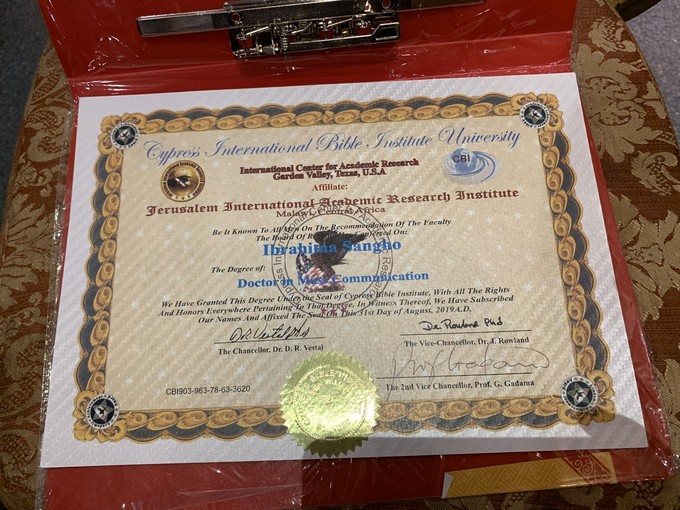Medias de masse et participation citoyenne au Mali de 1992 A 2018
Thèse pour le Doctorat PHD en Communication de masse
Sous la direction de : PROF. DR. PRINCE GUSTO GADAMA
2ND VICE-CHANCELLOR
Présentée et soutenue publiquement par
Ibrahima SANGHO
Lilongwe – Malawi – Central Africa–Samedi 31 août 2019
Membres du jury:
- Dr Ellen Nakanga , Committee Chair
- Dr Henry Nkhomanya, Director, Graduate Studies
- Dr K. Kacheche, CBIU Faculty Member
RESUME
La communication a toujours occupé une place de choix dans l’affirmation de l’existence des civilisations passées et présentes. Les mass media sont supposés pouvoir influencer l’opinion conçue comme une masse homogène d’individus soumis individuellement à leur action.
Le Mali a vécu avec les médias de masse de la colonisation à nos jours. Mais, c’est à partir de 1989 que la presse libre et plurielle est apparue. La démocratie participative, quant à elle, est survenue à partir de 1991.

Abstract
Communication has always occupied a prominent place in the affirmation of the existence of past and present civilizations. The mass media are supposed to be able to influence the opinion conceived as a homogeneous mass of individuals subjected to their action.
Mali has lived with mass media from colonization to the present day. But it is from 1989 that the free and plural press appeared. Participatory democracy, meanwhile, occurred in 1991.
This study focuses on the mass media and citizen participation in Mali from 1992 to 2018. The study was, first of all, interested in mass communication and the mass media: the genesis, the myths and realities of mass communication, the influence of the mass media and the labels of propaganda and manipulation. It then went on to discuss Mali’s environment and mass media from 1992 to 2012: the state of mass media in Mali, the role of professional associations and the appropriation of mass media. The study also addressed the issue of citizen participation and mass media in Mali from 2013 to 2018: citizen participation, the socio-cultural equation and the future of mass media in Mali. Finally, the study was interested in mass languages, the role of the media, governance, government communication and the regulation of mass media in Mali.